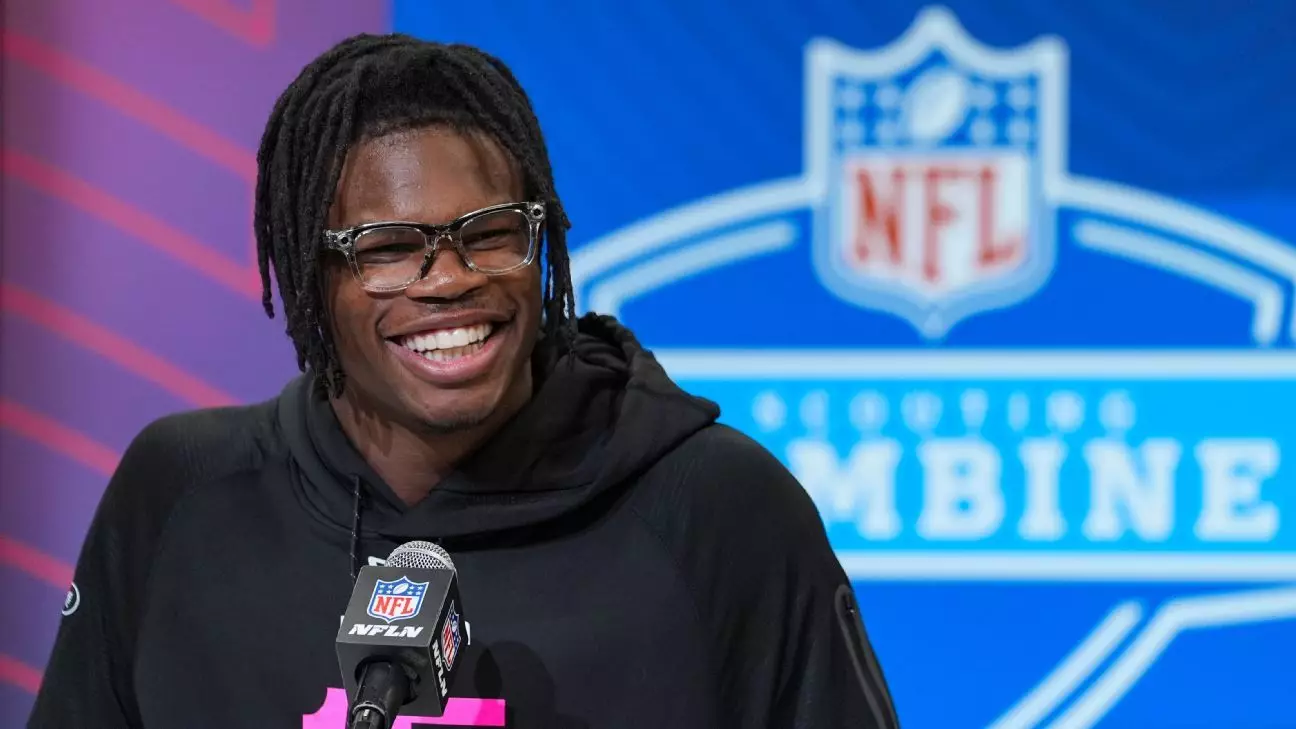Travis Hunter is not merely any player; he embodies a rare blend of skills that challenges the very foundations of traditional football roles. The world has watched as this extraordinary two-way star navigated the pressures leading up to the NFL Draft. His recent declaration to CBS Sports reveals an unwavering resolve: if any team insists he must choose between playing wide receiver or cornerback, it would signify the end of his football career. This assertion is more than just personal preference; it shouts a manifesto for a new era in football. With Hunter, we witness a paradigm shift where players refuse to be pigeonholed and demand their multifaceted talents be acknowledged and leveraged.
The Unapologetic Pursuit of Passion
Hunter’s journey has been anything but conventional. En route to earning the prestigious Heisman Trophy and a myriad of accolades symbolizing his dual-threat prowess, he managed to captivate not only the eyes of scouts but also the hearts of fans who crave authenticity on the field. The staggering numbers speak volumes: over 700 snaps on both offense and defense with standout performances in a single season, showcasing not just resilience but unparalleled talent. His statement about dominating on both sides of the field isn’t merely hollow boastfulness; it’s a reflection of his lifelong dedication to the sport. In a culture that often prioritizes specialization, Hunter’s attachment to versatility thrusts him into the spotlight as a beacon of hope for those who wish to carve diverse paths in their passions.
Industry Implications and the Pressure to Conform
However, let’s consider the implications of Hunter’s stance within the larger context of a highly commercialized NFL. Teams that prioritize players’ fitting into predefined roles often do so out of a desire for rapid results—maximizing efficiency over embracing the creative chaos that accompanies a versatile athlete. The expectation that a player should excel in only one role seems to stifle innovation, reducing the game to a mere checklist of skill sets. Hunter’s resistance to this trend is commendable and begs the question: Are we ready to embrace a more eclectic approach in the sport, or will the industry continue to prioritize the status quo?
The Battle Within the Draft System
General Manager Andrew Berry’s remarks about Hunter being capable of excelling in both cornerback and wide receiver roles further highlight the potential for teams to embrace dual-threat players. This reality could reshape the dynamics in the NFL Draft. However, Hunter recognizes the inherent unpredictability: “It’s not up to me,” he said, underscoring the limitations that athletes often face within the rigid structures of professional sports. His acknowledgment of this external pressure adds a profound layer of complexity to the discussion—while teams may now recognize the potential within players like him, their actions may still reflect traditional biases.
Hunter’s conviction emerges not just as a personal journey but as a statement in favor of change. His natural instinct to fight for his versatility exemplifies the determination required not just to succeed in the NFL, but to redefine what success can look like in sports—a diversified landscape where being multifaceted is not only celebrated but demanded.
Building the Future on Flexibility
It is imperative for the NFL and its franchises to evolve alongside players like Travis Hunter. As he stands on the precipice of this new chapter, the conversation surrounding versatility versus specialization will only grow louder. Will the league choose to continue favoring specialization, potentially stifling innovation, or allow its athletes the freedom to express themselves holistically? The stakes are monumental—not just for Hunter, but for the future of the sport itself.
As fans, players, and executives continue to engage with this narrative, we must collectively advocate for a shift toward an open-minded acceptance of diverse skill sets. The future of football may very well hinge on the courage of athletes like Travis Hunter to refuse the constraints that come with outdated norms. This is not merely a fight for one player but a call for an entire league to embrace the richness that comes with versatility.


Leave a Reply